Harrowing video footage has exposed the shocking practices of Vietnam’s wet markets, capturing the barbaric slaughter of dogs and cats for their meat.
The dog meat trade has long sparked controversy, with The Humane Society estimating that five million dogs and one million cats are “captured, stolen, trafficked and slaughtered each year in Vietnam to supply meat for human consumption.”
In a new investigation, animal rights charity Lady Freethinker traveled to the country’s capital, Hanoi, and toured its markets to capture the abuse as part of its campaign for a ban.
Founder Nina Jackel said: “The conditions we encountered were heartbreaking, no animal should be treated that way.” The dogs visibly trembled with fear as they watched other dogs being killed right in front of them.’
Some of the kittens and puppies seen crammed into cages were still wearing collars, suggesting they were stolen pets.
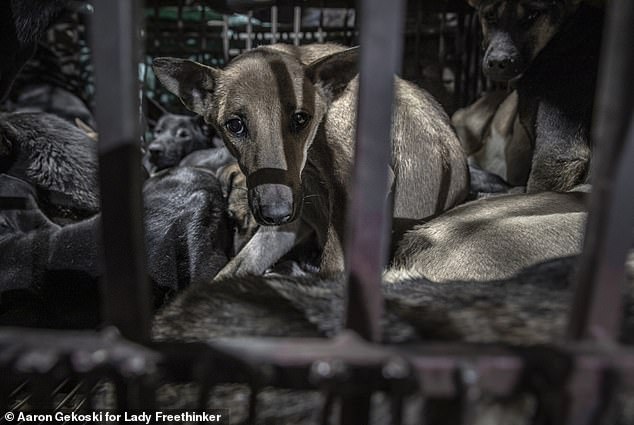
A harrowing video from non-profit organization Lady Freethinker has exposed shocking practices in Vietnam’s dog meat markets.


The Humane Society estimated that five million dogs and one million cats are trapped and eaten in Vietnam each year.
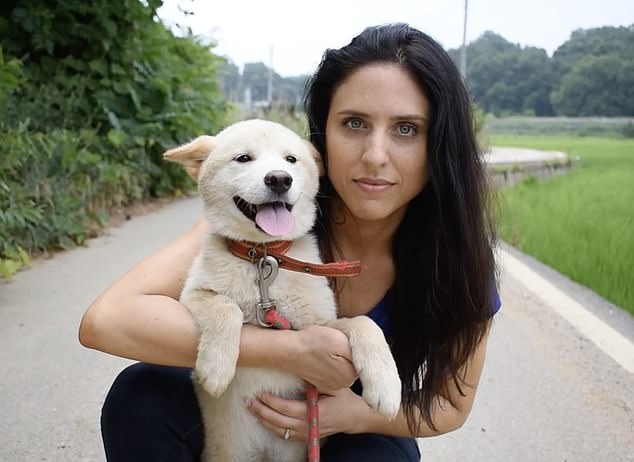

Founder Nina Jackel said: “The conditions we encountered were heartbreaking, no animal should be treated that way.”
As polls suggest public sentiment towards the practice in Vietnam is changing, the charity is calling for a ban on the trade, following a similar law in South Korea.
The nonprofit’s researcher made several visits to markets and restaurants in Hanoi’s city center and found “extreme suffering in dogs and cats.”
They said: ‘The animals’ meat was processed on top of the cages of live dogs, and blood dripped onto the faces of the frightened animals.
‘A dog was hit repeatedly on the head and then thrown into a bin.
“The dog appeared paralyzed in an unnatural position and was breathing several times with difficulty as it slowly died on top of the bodies of two other dogs.”
“The workers grabbed the struggling dogs by the neck with long metal pincers, repeatedly hit them on the head with a giant club while they were restrained, and then moved on to the next dog in the cage,” they said.
Eating dog meat is an old tradition in Vietnam, mainly in the north of the country.
Dog is a popular dish for special occasions, parties and gatherings and is considered to have a wide range of health benefits, from men’s virility to daily protein and energy.
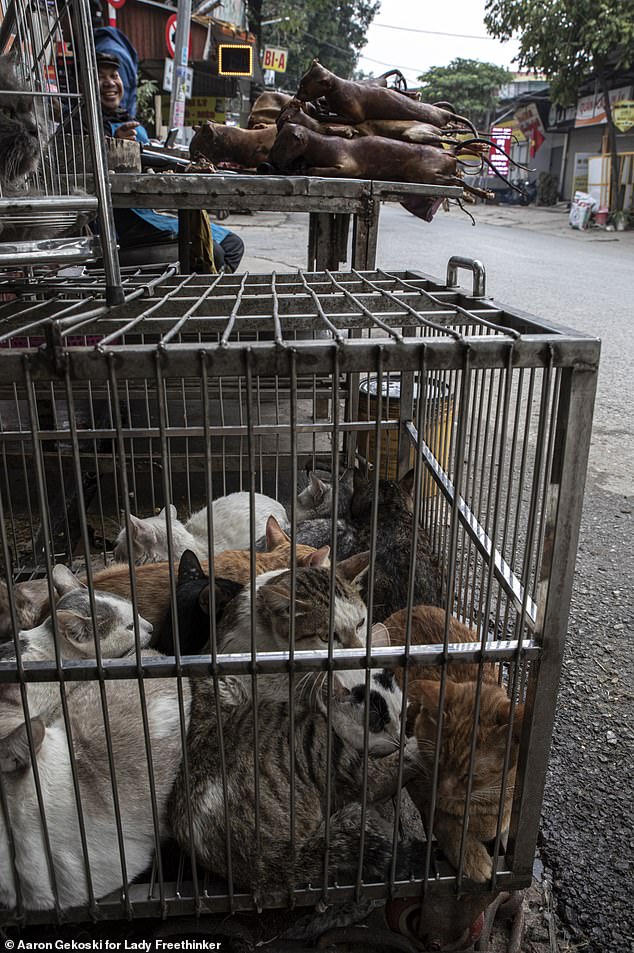

Many of the kittens and puppies seen crammed into cages were still wearing collars, suggesting they were stolen pets.
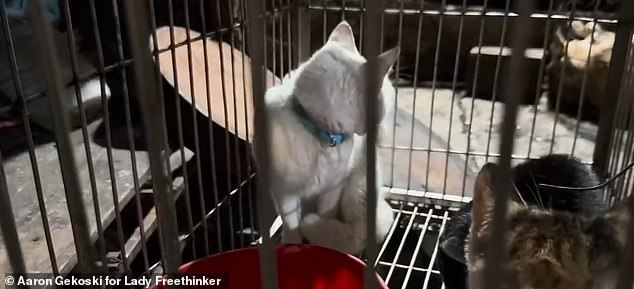

One of the cats photographed was wearing a bright blue collar.


The meat was processed on top of cages of live dogs.
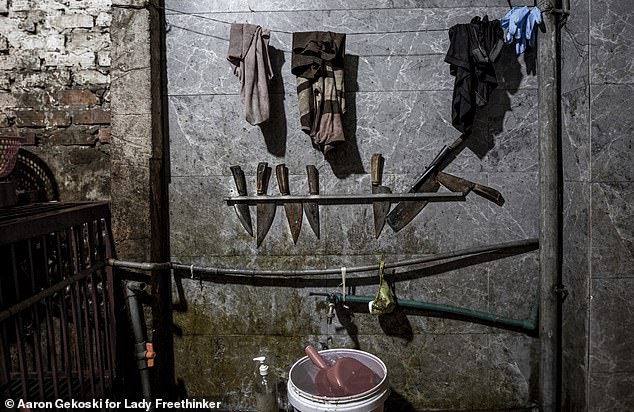

The workers grabbed the struggling dogs by the neck with long metal pincers and beat them.
A survey commissioned by Humane Society International in September 2023 found that 40 percent of the Vietnamese population eat dog meat, while 21 percent eat cat meat.
They found that dog meat is most popular among men in northern Vietnam, while cat meat dishes are particularly common in Hanoi.
Jackel said: ‘Animal cruelty is not species-specific. The conditions we encountered were heartbreaking and no animal should be treated that way, just like pigs and cows.
“Factory farm conditions are horrible and we campaign for all animals.”
Outrage over the dog trade arises every few years, but surveys suggest there is growing negative sentiment towards it among young Vietnamese.
More young people have begun to support the ban on dog and cat meat and do not believe that dog and cat meat are part of Vietnamese culture.
A recent The Humane Society poll found that 68 percent of people support banning the dog meat trade.
In addition to animal welfare concerns, they can have serious implications for human health.
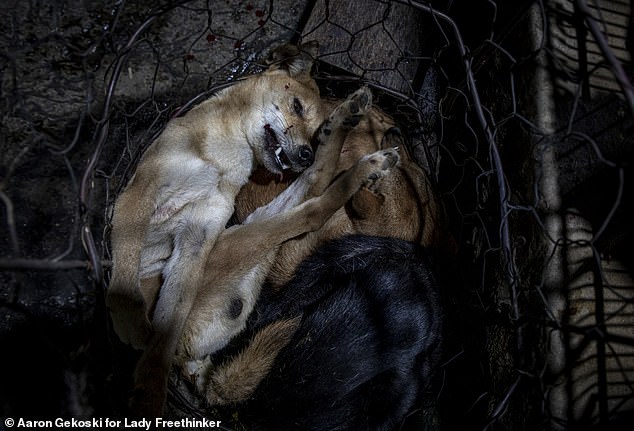

One dog the charity saw was repeatedly hit on the head and then thrown into the bin.
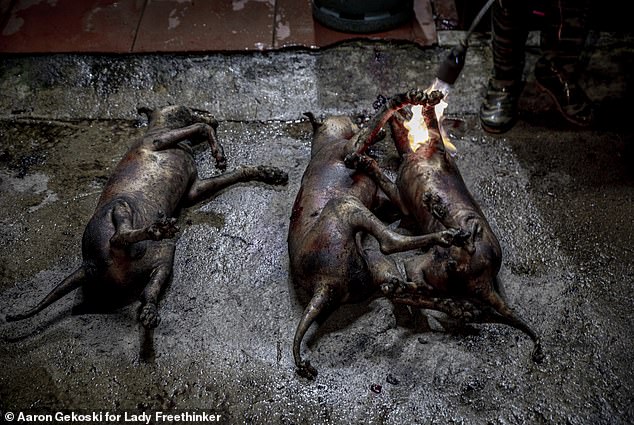

There is also a risk to human health, as the WHO warns that eating dogs can cause cholera.
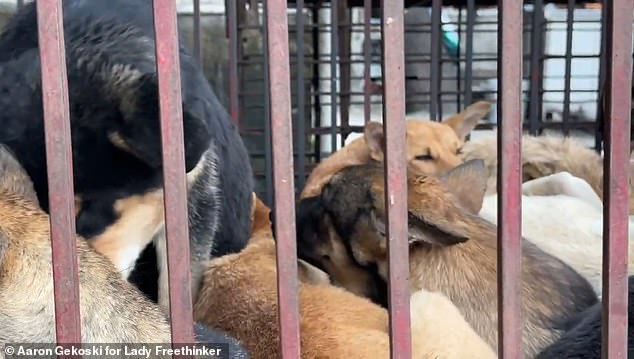

Recent polls by charities have reported that the majority of Vietnamese citizens support the ban.
Jackel said: ‘Very recently it was reported locally that a man working in the dog meat trade in Vietnam died of rabies from a bite.
‘It is clear that this implies a risk to human health. The World Health Organization has warned that the slaughter and consumption of dogs poses risks to human health, including rabies and cholera, and is not limited to the health of dogs.
In addition to health problems, there have been many reports of people having their pets stolen and sold for meat.
Some of the animals the charity saw were wearing collars, suggesting they were pets and had recently been stolen, while others were strays or had been raised for meat.
Jackel said: “These animals are often stolen companions, so beyond the cruelty of the slaughter, there are human families missing their beloved pets.”
In January, South Korea’s national assembly unanimously passed a motion to ban slaugh, breed, market or sell dogs for human consumption, starting in 2027.
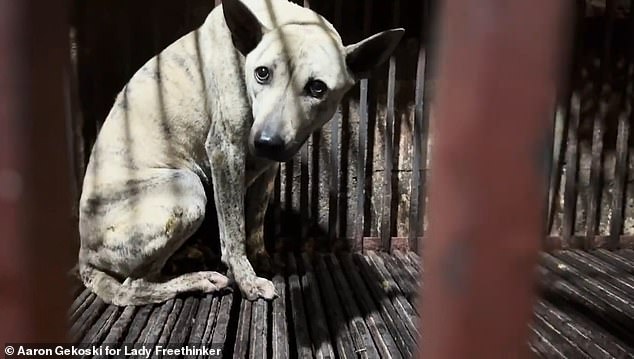

In January, South Korea’s national assembly unanimously passed a motion to ban the dog trade by 2027.
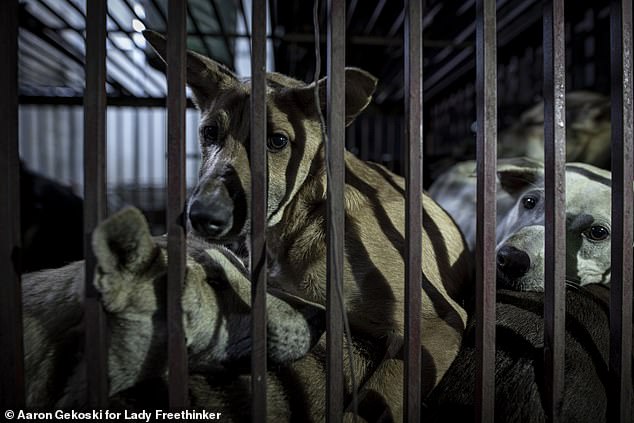

Jackel also campaigns to ban this practice in Vietnam
Now Lady Freethinker is campaigning to ban this practice in Vietnam too.
Vietnam has already taken steps toward a ban. In 2018, Hanoi announced that it would phase out dog meat consumption completely by 2021.
But Jackel said: “Clearly that hasn’t happened.”
He added: “I hope that with these findings we can encourage the government to review this and enforce a ban.”
‘The evidence is clear: dogs and cats are suffering immensely in Vietnam’s meat trade, and human health is also at risk. I urge the government to take action to stop this cruel and dangerous industry.’
